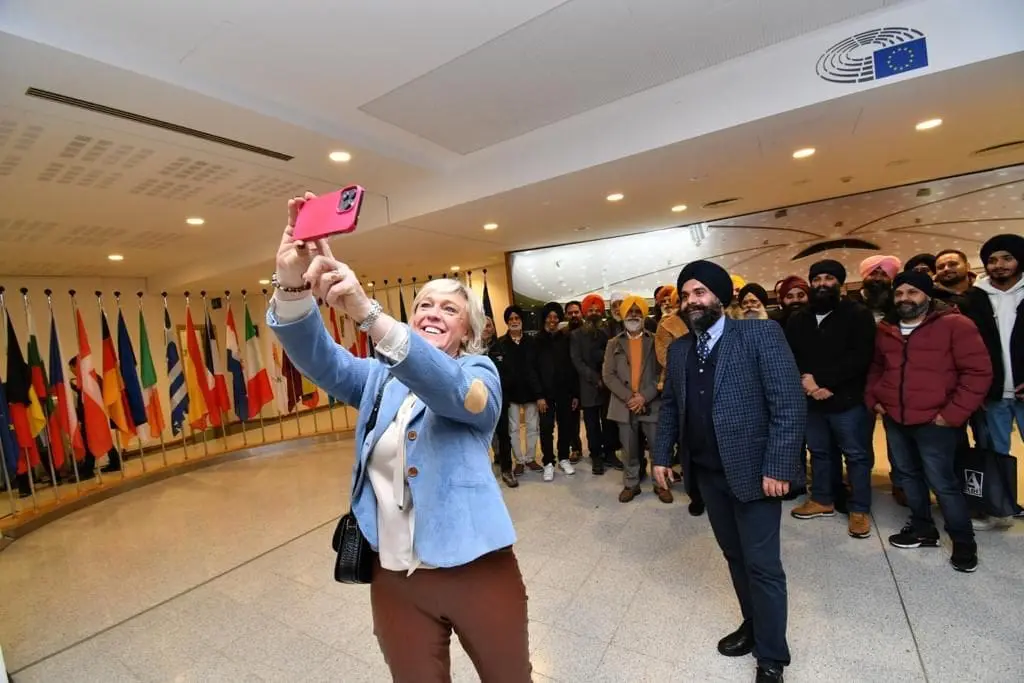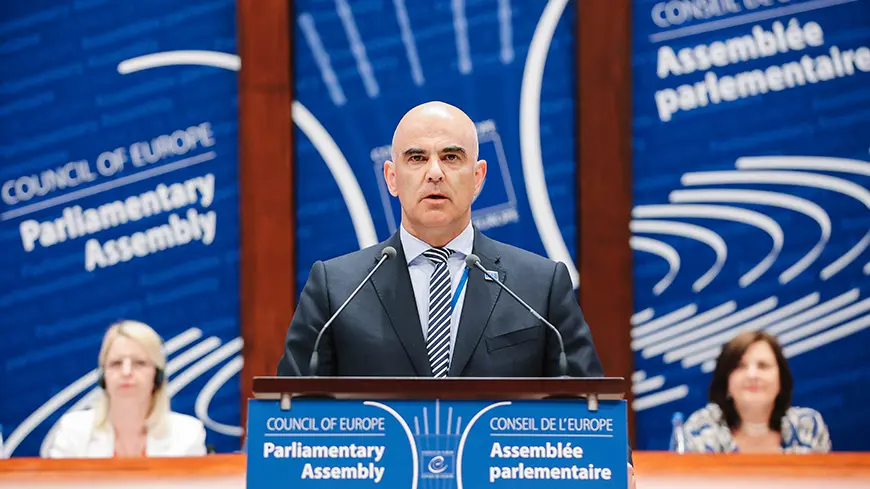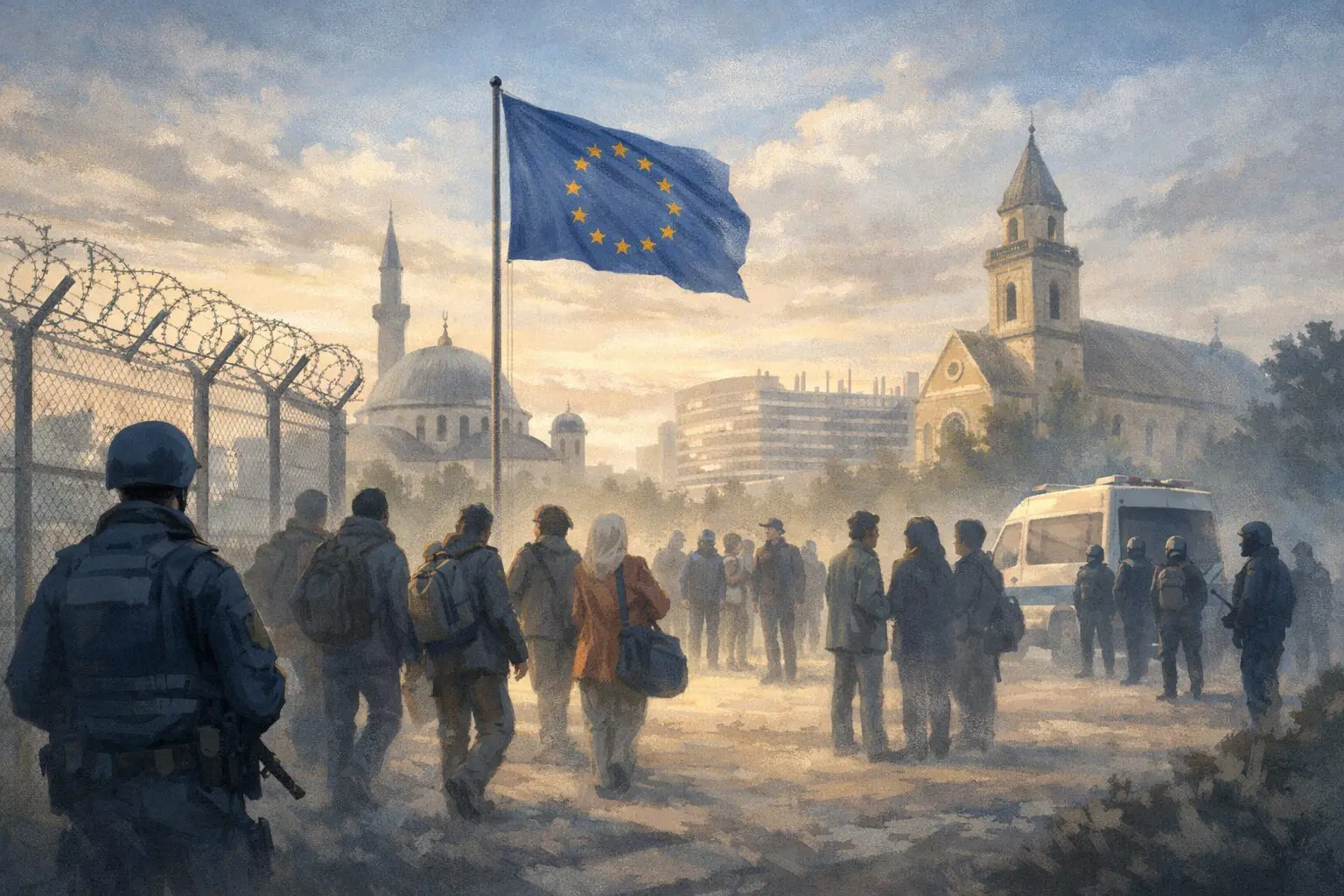In a groundbreaking event on December 6, history was made as a Sikh delegation, accompanied by members of the European Sikh Organization, was extended a warm welcome at the European Parliament. This significant development marked the first time Sikhs were officially invited to the European Parliament, where promises of support for the recognition of Sikhs within the European Union were made.
The Sikh delegation, with its registered office in Vilvoorde, was acknowledged by some members of the European Parliament as exemplary residents and citizens of Europe. This recognition, in part, can be attributed to the efforts of Member of the European Parliament Hilde Vautmans from the Open VLD party. Vautmans, who resides in Sint-Truiden—a region with a notable Sikh population—has emerged as a champion for the Sikh community, pledging her assistance in securing recognition for Sikhi not only in Belgium but across the entire European Union.
Vautmans’ commitment to the cause was underscored by her supporting of the Sikh community in gaining recognition for their faith in Belgium and throughout the European Union. Her connection with Sint-Truiden, a city where many Sikhs have chosen to call home, has further fueled her determination to champion their cause on the European stage.
The Sikh community’s spokesman and chairman, Binder Singh, expressed satisfaction with the positive reception they received at the European Parliament. Singh, at 40 years old, emphasized the importance of continued support for the Sikh community in various areas, enabling them to practice peacefully the teachings of Guru Nanak Saab while preserving their unique identity in European countries.
“We continue to look forward to support in all areas so that we can spread the message of Guru Nanak Saab in the European countries with our own identity. Our purpose is not change noboddy’es religion, but to contribute to the enrichemnt of the societies where we live” remarked Singh. This statement encapsulates the broader aspiration of the Sikh community—to share the profound teachings of their Guru while maintaining their distinct cultural and religious identity.
The recognition and support from the European Parliament represent a significant step forward for the Sikh community’s efforts to establish a more prominent presence within the European Union. It not only validates their contributions as residents and citizens but also acknowledges the richness of Sikh culture and the importance of integrating it into the diverse fabric of Europe.
Sikhs have a long history of migration and settlement in various parts of the world, contributing significantly to the cultural tapestry of the regions they inhabit. The European Sikh Organization‘s visit to the European Parliament signifies a desire for deeper integration and recognition, highlighting the need for a comprehensive understanding of Sikhism and its values.
As Europe continues to embrace its multicultural identity, acknowledging and celebrating the diversity of its residents becomes paramount. The support extended by MEP Hilde Vautmans and her colleagues is not just a political gesture; it reflects a commitment to inclusivity and a recognition of the positive impact the Sikh community has on European society.
While Sikhs have been an integral part of European communities for many years, the recent visit to the European Parliament opens new avenues for dialogue and collaboration. It provides an opportunity for lawmakers to gain a deeper understanding of Sikh values, fostering an environment where the Sikh community can thrive while staying true to its heritage.
The recognition of Sikhi in Belgium and the broader European Union is not just a legal or administrative matter; it is about acknowledging and respecting the rich cultural and religious tapestry that Sikhs bring to the European mosaic. The European Parliament’s promise of support signifies a step toward ensuring that Sikhs can practice and promote their faith freely, contributing to the diversity that defines Europe.
As the Sikh community continues to navigate the path towards recognition, the engagement with the European Parliament serves as a catalyst for broader conversations about diversity, religious freedom, and the importance of preserving cultural identities within the European Union. The positive response from parliamentarians sets a precedent for future collaboration and understanding between the Sikh community and European institutions.
In conclusion, the historic visit of the European Sikh Organization to the European Parliament, accompanied by a supportive Sikh delegation, marks a significant milestone in the journey toward recognition within the European Union. The promises of support from MEP Hilde Vautmans and her colleagues signal a positive shift, fostering an environment where Sikhs can proudly practice their faith and contribute to the vibrant cultural tapestry of Europe. As the dialogue continues, this event paves the way for a more inclusive and diverse European Union that cherishes and celebrates the richness of its multicultural communities.







